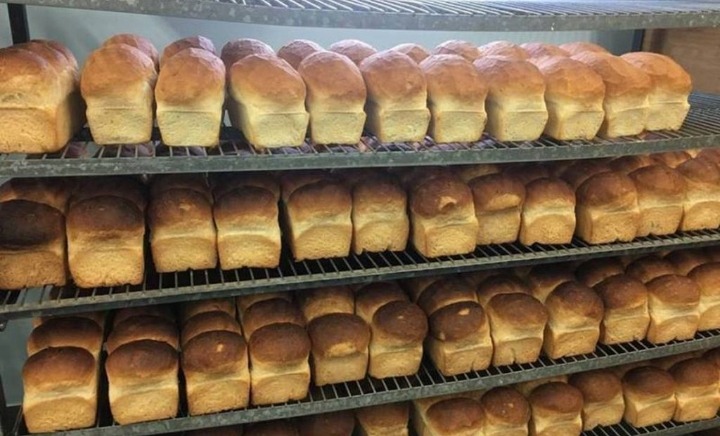Bakers under the aegis of the Premium Breadmakers Association of Nigeria have announced plans to halt production of their products, effective Thursday.
According to a statement signed by the President of the association, Emmanuel Onuorah, operating a bakery in Nigeria has become almost impossible as the incessant increases in the prices of baking materials and diesel have affected the industry negatively.
Onuorah said bakeries were running in losses and the situation was no longer sustainable.
According to him, bread is a staple food and one of the cheapest ‘grab and go’ food that is available for both the poor and the rich.
READ ALSO: Bread Producers Threaten Strike Over Bakery Materials’ Price Hike
“It, therefore, behoves the Federal Government to be mindful of this and ensure the survival and sustainability of the industry,” he said.
The statement read in part, “In a move to ensure the survival of the premium bread-making industry in Nigeria, we have decided to embark on a withdrawal of services beginning from Thursday 21st of July, 2022 for four days in the first instance and where there is no intervention from the government, we shall escalate the duration of the withdrawal.”
“The reasons for the withdrawal of services included an incessant increase in the price of baking materials, Federal Government’s 15 per cent wheat development levy on wheat import, NAFDAC’s N154,000 penalty charged for late renewal of certificates, the inability of its members to access grants and soft loans being given by the Central Bank of Nigeria to Micro, Small and Medium-Scale Enterprises and multi-agencies regulation of the bread-making industry.”
The statement further read, “Our efforts to ensure the survival of the industry led to a series of meetings with the Federal Ministry of Industry, Trade and Investment, Abuja with our sister association in the bread-making industry in 2021. Our best attempts through the suggestions we put forward for the survival of the bread-making industry have not yielded the desired result.
“Therefore, the withdrawal of service is the only way we believe we can use to get to Federal Government and Nigerians and let them know our plight and how difficult it has been with the bread-making industry in Nigeria.”
Last month, the Association of Master Bakers and Caterers of Nigeria via a communique issued, and signed by the association’s executives, led by Mansur Umar, had declared that it would embark on two-week strike action in response to skyrocketing prices of baking materials.
An economic expert and associate professor of Economics at the Pan-Atlantic University, Lagos, Olalekan Aworinde, believes the Nigerian government has become lethargic towards addressing certain critical issues plaguing the economy. This, he said, had made strike action the last resort for interest groups who desire to be heard.
Aworinde said, “If they shut down, it tells us that the poverty rate in Nigeria will continue to increase because bread is one of the common foods that individuals eat every day. Hardly will you see any household that doesn’t eat bread.
“That tells us that it will be difficult for people to put food on their table when bread is not available. It also tells us that the price of bread is also likely going to increase because their going on strike is to show that there is a possibility of also increasing the price of their product.
READ ALSO: Hunger Looms As Bakers Set To Shut Down Industry Nationwide
“Aside from that, there are also the workers. There are workers that work in these bakeries and are paid daily. That tells you that the level of unemployment is likely going to be on the increase and that we are likely going to have some social ills in the country. We are likely going to see an increase in armed robbery because when people are not gainfully employed, the tendency is that they will turn to armed robbery.”
A consumer, Chinedu Michael, who spoke with The PUNCH on the possible impact of the strike said while the need to adjust to other possibilities would be inevitable, the absence of bread on the shelves would impact negatively on personal finance.
He said, “Most people eat bread. There’s almost no alternative to bread. So obviously it will require a big adjustment to survive without it.”
The Executive Secretary, Flour Mill Association of Nigeria, Yunus Olalekan, did not respond to calls as of the time of filing this report.
PUNCH
